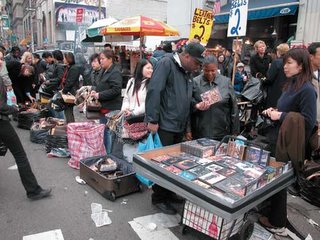 Ras Kass & The Game Get Into Physical Altercation:
Ras Kass & The Game Get Into Physical Altercation:Ras Kass RespondsThursday - September 14, 2006
Game and Ras Kass apparently were involved in a scuffle on Wednesday Night (September 13) at a nightclub in Hollywood, California.
While in town for the West Coast leg of his tour with Rakim and Kid Capri, Ras Kass enjoyed a night on the town, when he was confronted by Game and an entourage of about 30, according to Ras Kass."The n***** tried to jump me 30 to 2, yet I'm alive and chillin'," Ras Kass said in a statement. "My sweater is still white and all my jewelry intact. Game is a 'Change Of Heart,' stripping, fake-ass blood, who sold some records riding Dr Dre's shirt tails."
Ras says the incident left him unscathed and that he even confronted him outside the club afterwards."I guess he thought this would help him sell some more records. I was so unfazed by it all that I went up to his car afterwards and challenged him right there. Game is no match for me physically or lyrically," explained the rapper.Game was reportedly upset with lyrics recited by Ras Kass on a mixtape track released last year called "Caution."
On the track, Ras spits the lines, "Get a thousand tattoos and won't raise ya gun/ so when you get merked, I'ma raise ya son."
Many felt the bars spat by Ras Kass on the track were directed toward Game, although Ras Kass said in the past that they were not.
"The track 'Caution' that I wrote and recorded is not directed towards any artist. It's a general statement. If the shoe fits, find a matching skirt," Ras Kass said in a statement last year. "When I do diss somebody, I certainly wouldn’t bring their children into it."At press time, Ras said he has no intentions of going at Game lyrically. "He can sell records on his own dime," said the rapper.






